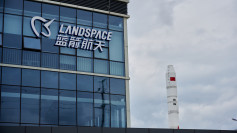Tesla's stock reached a milestone Friday, with the electric vehicle manufacturer's market value soaring past $1 trillion, spurred by a 10% surge in share price. Investors appear optimistic that a second Trump administration, with Elon Musk as a close ally, will create a favorable regulatory landscape for Tesla and its ambitious autonomous driving goals. The rally comes on the heels of Donald Trump's recent election victory, which, according to market analysts, may bring regulatory relief for Tesla and other tech giants.
For Tesla, reaching the $1 trillion valuation is a return to the elite ranks of mega-cap companies like Apple, Microsoft, and Amazon. Tesla first crossed this threshold in October 2021 before facing significant market volatility. Today, renewed investor enthusiasm, sparked by Trump's electoral win and Musk's substantial backing of the former president, has propelled Tesla shares to trade at around $317, a roughly 29% increase year-to-date.
Musk's financial influence in the recent election cycle has been considerable. The CEO contributed nearly $130 million to pro-Trump campaign efforts, signaling his commitment to policies aligned with Trump's economic approach. Musk, whose personal net worth surged past $300 billion as Tesla's stock price soared, has been outspoken about the potential advantages of a Trump administration for Tesla, particularly regarding autonomous vehicle regulations.
Garrett Nelson, senior equity analyst at CFRA Research, noted that "Tesla and CEO Elon Musk are perhaps the biggest winners from the election result," adding that Trump's anticipated regulatory support could significantly expedite approval processes for autonomous driving technology. The potential policy shift is already energizing investors who expect a favorable environment for Tesla's future projects.
Wedbush Securities analyst Dan Ives echoed similar sentiments, highlighting Tesla's scale and strategic advantage in the electric vehicle industry. Ives wrote in a note to clients, "Tesla has the scale and scope that is unmatched in the EV industry... and this dynamic could give Musk and Tesla a clear competitive advantage in a non-EV subsidy environment." Trump's administration is expected to take a more hands-off approach to regulations, possibly reducing the federal $7,500 EV tax credit that has historically boosted Tesla's sales.
Despite his success with Tesla, Musk's investments have not always proven equally rewarding. In his purchase of Twitter-now rebranded as X-Musk reportedly overpaid by billions, as the platform's current valuation sits at about 70% less than the original $44 billion purchase price. Nonetheless, Musk continues to focus his efforts on Tesla and other ambitious projects, including xAI, an AI startup he founded and majority-owns.
Tesla's recent financials indicate the company is in strong standing. For the third quarter, Tesla posted revenues of $25.18 billion and a net income of $2.17 billion. Musk has publicly shared an optimistic forecast for Tesla's growth, predicting a 20% to 30% increase in vehicle deliveries next year, buoyed by advancements in autonomous driving capabilities.
As part of Tesla's long-term strategy, Musk aims to achieve federal-level approval for autonomous vehicles, which could unlock new revenue streams. At present, vehicle regulations are state-specific, creating challenges for companies like Tesla as they pursue fully automated driving technology. Musk has indicated he intends to leverage his relationship with the Trump administration to establish a "federal approval process" for autonomous vehicles, reducing red tape across state lines.
Trump, for his part, has expressed his appreciation for Musk's work and has mentioned plans to engage Musk in government advisory roles. Trump has suggested Musk could lead a newly established government efficiency commission, a role that would dovetail with Musk's expressed desire to streamline U.S. government spending. In particular, Musk believes his involvement could identify up to $2 trillion in potential savings from the federal budget.
Tesla's momentum comes amid intensifying competition in the global EV market, particularly from Chinese manufacturers like BYD and Xiaomi. These companies have significantly disrupted the industry by offering more affordable EV options, placing pressure on Tesla's market share. However, Trump's tariffs on Chinese imports could further insulate Tesla from this competition, allowing Musk's company to capture more of the U.S. EV market.




